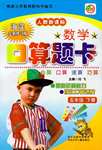题目内容
你校拟在课外活动时间开设烹饪课。现在,请你根据以
下提示,给校刊的英语专栏写一篇短文。
1. 同学们对开设烹饪课看法各异;
2. 你持赞成态度及其理由(两点);
3. 你对开设烹饪课的建议(一条)。
注意:1. 词数120字左右。
2. 可适当增加细节,以使行文连贯;
3. 文中不能出现你和学校的真实名字
练习册系列答案
 口算题卡河北少年儿童出版社系列答案
口算题卡河北少年儿童出版社系列答案 A加金题 系列答案
A加金题 系列答案 全优测试卷系列答案
全优测试卷系列答案
相关题目
题目内容
你校拟在课外活动时间开设烹饪课。现在,请你根据以
下提示,给校刊的英语专栏写一篇短文。
1. 同学们对开设烹饪课看法各异;
2. 你持赞成态度及其理由(两点);
3. 你对开设烹饪课的建议(一条)。
注意:1. 词数120字左右。
2. 可适当增加细节,以使行文连贯;
3. 文中不能出现你和学校的真实名字
 口算题卡河北少年儿童出版社系列答案
口算题卡河北少年儿童出版社系列答案 A加金题 系列答案
A加金题 系列答案 全优测试卷系列答案
全优测试卷系列答案